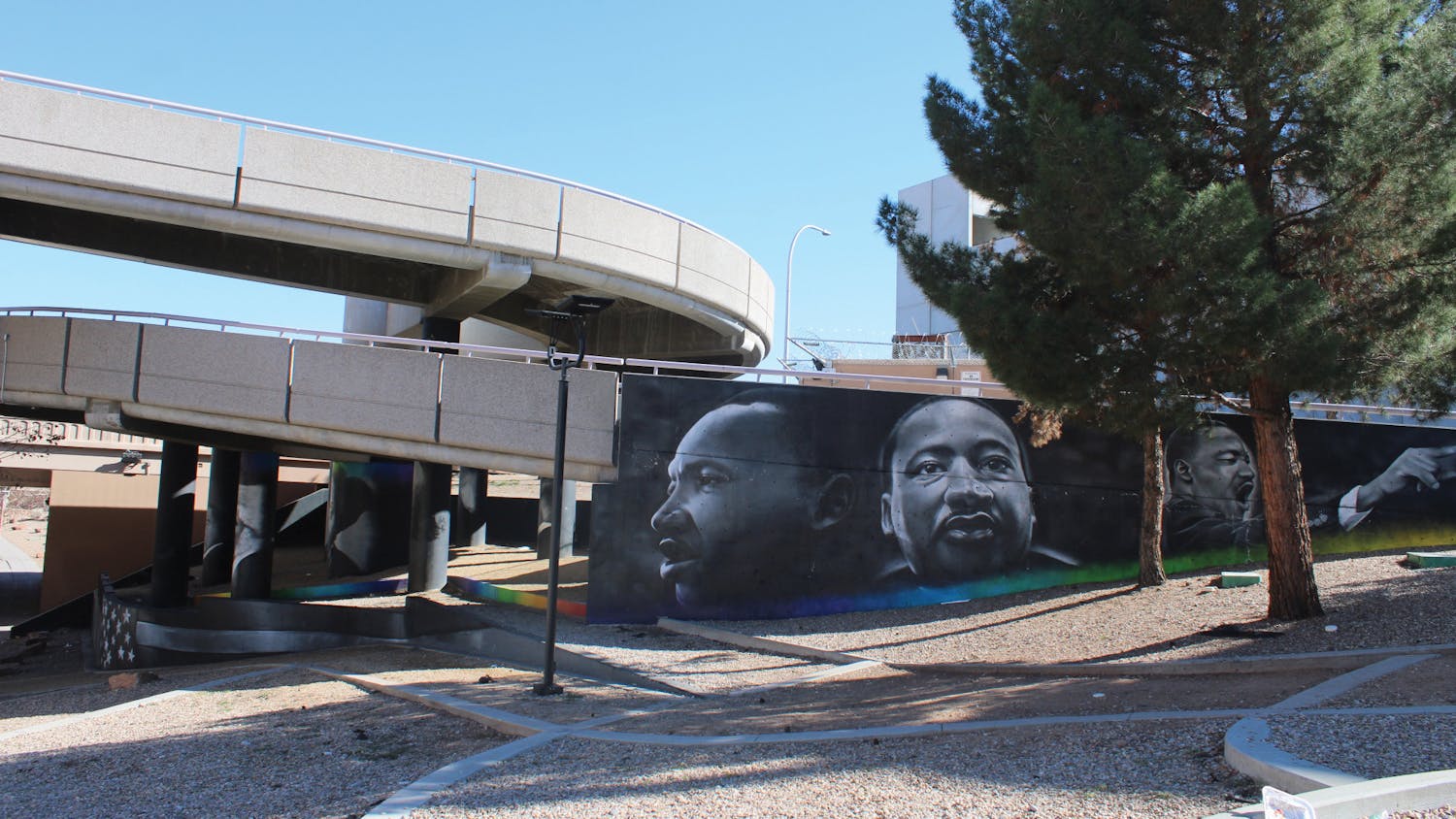The University of New Mexico celebrated Women’s History Month with a special guest lecture from Alejandra Dubcovsky who presented her research on the role of women in Native American history in the Florida region.
Her book, “Talking Back: Native Women and the Making of the Early South,” provides commentary on the disservice done to women when their stories are left untold.
Contrasts across translations and cultures often highlight an important difference between how Native and non-Native cultures view women and tell women’s stories, if they tell them at all, Dubcovsky said. Gaps where women should be but aren’t are a problem that Dubcovsky said she hopes to solve.
During the lecture, Dubcovsky provided an example by discussing the differences between the Spanish version of Adam and Eve, and the translation into the Timucua language – the Native people from North Florida.
The Spanish story condemned Eve, and only Eve, while the Timucua version highlighted Eve’s inner conflict between her love for her husband and her lack of desire to serve him, Dubcovsky said. In the Timucua version, Eve has a monologue wherein she explains that she eats the apple because she wishes to be “a powerful war chief, and a knower of all things.”
Women’s History Month can be an opportunity for reflection and remembrance of often forgotten stories, Taren Warfield said – a UNM master’s student studying U.S. and West History at the lecture.
“(It is) important to specify and focus on marginalized people. There has to be a Women’s History Month so that people can recognize and hear it and be faced with it, whether they want to or not,” Warfield said.
Academics and individuals often assume that certain eras and stories throughout history did not have women in them, Dubcovsky said. This forgets stories and historical accounts wherein Native women are in power and determine not only their own fates but political outcomes as well, Dubcovsky said.
Dubcovsky sought to remind guests that women and their contributions are ever-present, as many Indigenous groups were matrilineal.
“(Matrilineality) was so much more than just deciding the line of chiefly succession … For so long, we think matrilineality means that the line passes through the mother, as if somehow that explains matrilineality,” Dubcovsky said.
Matrilineality is an entirely different framework for looking at family and social bonds, that places where women’s power is at the forefront. It places traditional “feminine” roles, such as homemaker, at the forefront of power and influence, Dubcovsky said.
Historians can have a habit of writing about women in a domestic and mundane fashion, Sam Truett said – the director of the Center for the Southwest with the UNM history department.
Get content from The Daily Lobo delivered to your inbox
“They’re just cooking, or doing predictable things. It’s important when looking at societies, like the ones (Dubcovsky) is looking at, where politics are structured around women … it's super important for students, and all of us (to understand) that, and we’d probably need more than a month for that,” Truett said.
Women’s voices in the American South, Dubcovsky said, inspired her research.
“There wasn’t a book or an article on these women, and I thought, it’s really important to tell these stories … so we don’t imagine that Native agency and women’s voices are something (exclusively) contemporary,” Dubcovsky said.
Addison Fulton is a freelance reporter for the Daily Lobo. She can be reached at culture@dailylobo.com






